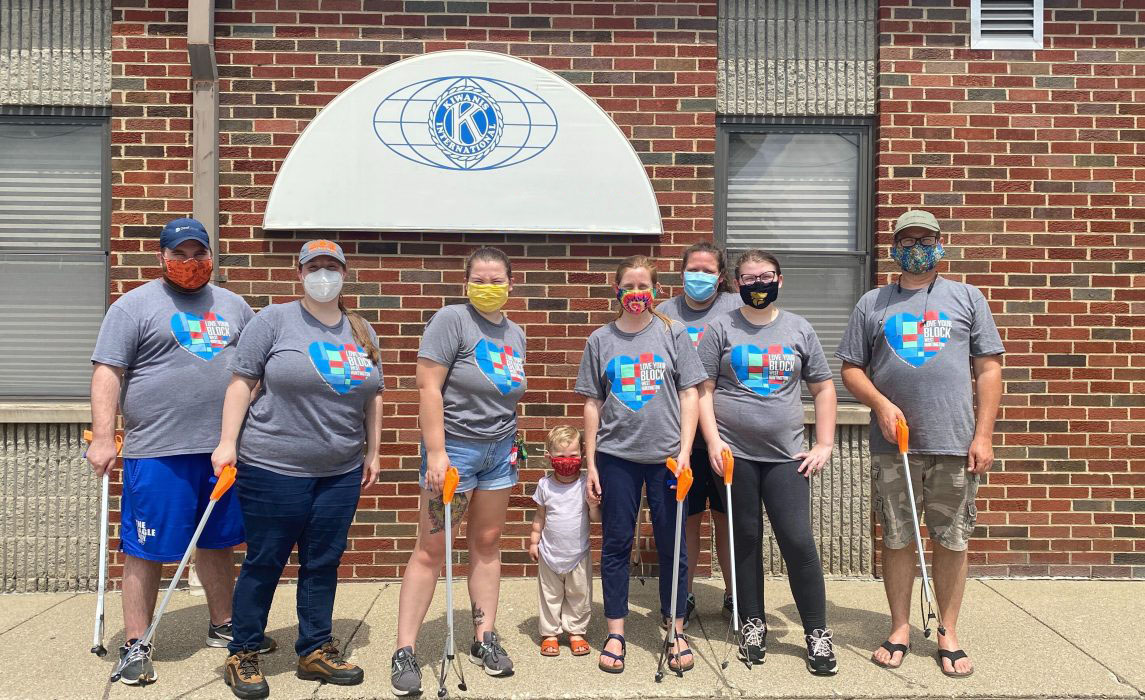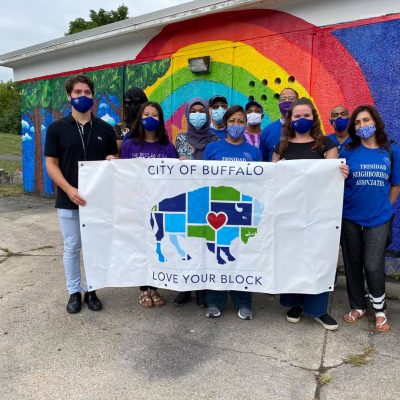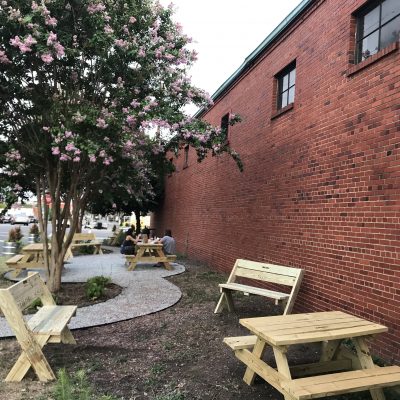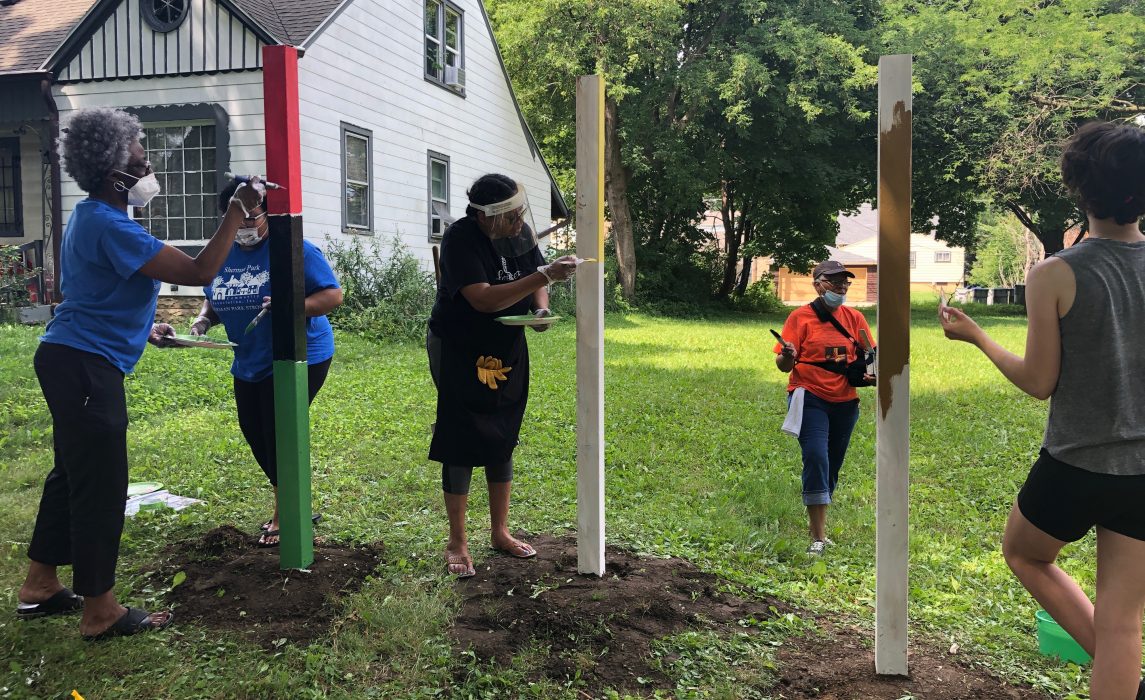Love Your Block Pivots for the Pandemic
Love Your Block builds community. The program provides mini-grants to neighborhood groups, which help residents revitalize neighborhoods, connect to city leaders, and strengthen community ties. But how does a program built on personal connections and neighborhood projects function in the middle of the COVID-19 health crisis?
By making some small but important adjustments, several cities participating in our national Love Your Block City Hall VISTA program have found ways to continue reaching residents and support community projects during the pandemic. Their efforts are relatively easy and inexpensive to implement and provide lessons for other cities as they contend with COVID-19.
Focusing Mini-Grants on COVID-19 Response
In Lancaster, Pennsylvania, city staff have refocused Love Your Block mini-grants on projects that prevent the spread of COVID-19 and build community while maintaining safety measures. Recipients include local resident Jenny Germann, who created and distributed coloring pages to families in need of activities for their children; and ITLM Southeast Ministries, which is distributing masks, gloves, and care packages to elderly homebound residents.
Other cities have followed suit.
South Bend, Indiana, has awarded 15 mini-grants as part of its Acts of Kindness program using Love Your Block funding from Cities of Service. The mini-grants are given to neighborhood associations in amounts of $250-$350 to plant community gardens, support homebound elderly residents, and assist with e-learning opportunities for kids.
And Milwaukee has designated $2,500 from Love Your Block funding for their Caring Community Mini-Grant program, which provides up to $500 toward projects such as sewing face masks, art kits for kids and seniors, and delivering books to neighbors.
Several cities found that neighborhood groups had already begun distributing food or helping their neighbors. With small grants, city leaders have helped residents continue this important work.
And many Love Your Block projects can continue as planned with minor changes. Projects often include outdoor activities, which are relatively safe when appropriate precautions are taken, and many community groups have modified their projects to ensure that volunteer groups do not get too large and can keep six feet apart while they work.
Building on Relationships
These Love Your Block projects often rely on and strengthen community ties. For example, one Buffalo resident who learned about the Love Your Block Community Response Fund happened to know someone who was a seamstress, who in turn knew other seamstresses. They began to work together to sew masks for their neighbors, using a mini-grant from the city to pay for materials.
“They created this network of ladies out there,” Oswaldo Mestre, Chief Service Officer for Buffalo told us. “They were [ready to go]. They said, ‘This is what we’re going to do.’”
Buffalo and other cities also depend on their existing relationships with block clubs and community leaders to help spread the word to group members and neighbors.
A Simple Way to Get the Word Out
Unable to show up at community meetings or knock on doors during the pandemic – two important methods of connecting with people – cities have found other ways to reach residents. Several, including South Bend, have used door hangers to spread the word about Love Your Block.
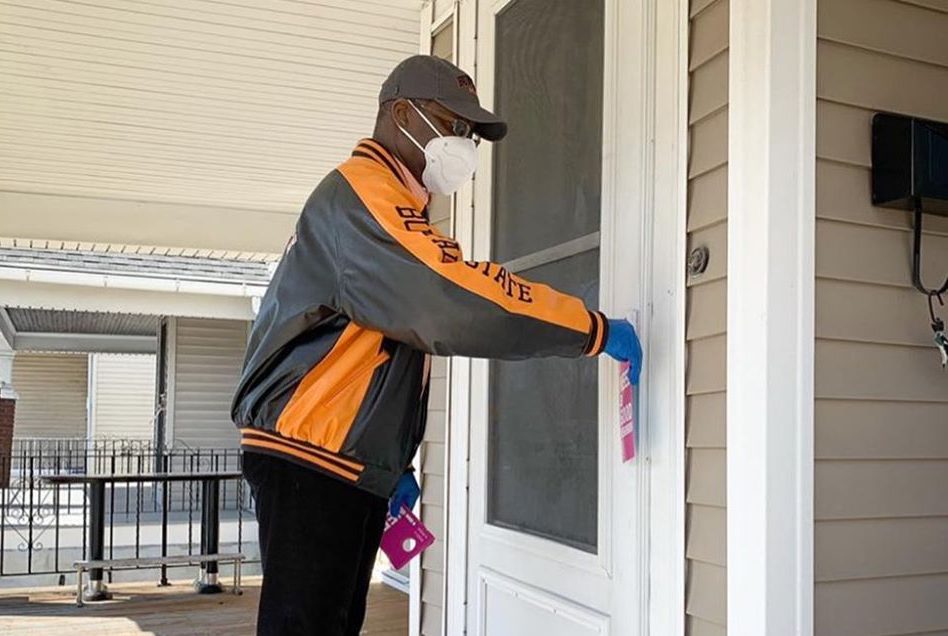
Buffalo Mayor Byron Brown distributes door hangers.
City staff in South Bend gave their efforts careful thought. They did not want residents to think the hangers were notices of code violations, so they designed them with colorful flowers so the hangers did not immediately look like city-issued notices.
Buffalo used door hangers slightly differently. The city created a Good Neighbors Network, delivering more than 150,000 door hangers to residences, with information on how to access services and on the reverse a bright graphic that reads, “I need a good neighbor.” If residents place the hanger on their door with the graphic facing out, it indicates that they need non-emergency assistance or a wellness check.
While social media, newsletters, and other electronic advertisements can reach many people, not everyone has access to the internet, especially in marginalized communities. Door hangers ensure city staff reach every household in target neighborhoods easily and safely.
Raising Spirits
Even residents that have access to technology may still need some help connecting to one another. South Bend’s Love Your Block program provides neighborhood associations with free subscriptions to one of three virtual meeting platforms: Zoom, Microsoft Teams, or Google Meet. They’ve already helped seven groups set up the new platforms and come together virtually.
There are other ways to help neighbors feel connected and lift spirits without meeting in person, like murals and gardens.
The Love Your Block team in Hartford, Connecticut, for example, is working with volunteers and the Parks and Recreation Department to plant daffodil bulbs in neighborhood entrances and gateways in memory of residents who have died from COVID-19.
These projects may each involve a relatively small number of people, but their effect reaches beyond the volunteers. Seeing new murals in the neighborhood or their neighbors out in the community helping one another lifts residents’ spirits during a difficult time. With the pandemic straining the mental health of people who may feel isolated, stressed, and afraid – this is especially important.
Love Your Block Still Going Strong
The Love Your Block AmeriCorps VISTA members in each city have played a critical role during this time. Many AmeriCorps VISTA members have participated in their city’s COVID-19 response – distributing food and PPE or tracking volunteer efforts. And in the midst of this, they have continued the important work of engaging residents. Some continued to work full time on these projects while their supervisors worked reduced hours due to budget shortfalls. This has allowed the Love Your Block program to continue and meet the needs of local communities.
Their continued work is especially important now, as interest in Love Your Block has grown significantly this year. Applications in most Love Your Block cities have increased – and doubled in many – perhaps demonstrating an increased reliance on neighborhood connections and the need for local community.
Love Your Block is all about building relationships and thriving local communities. Those connections are invaluable during the pandemic, and with some minor adjustments, the vital work of Love Your Block continues.

